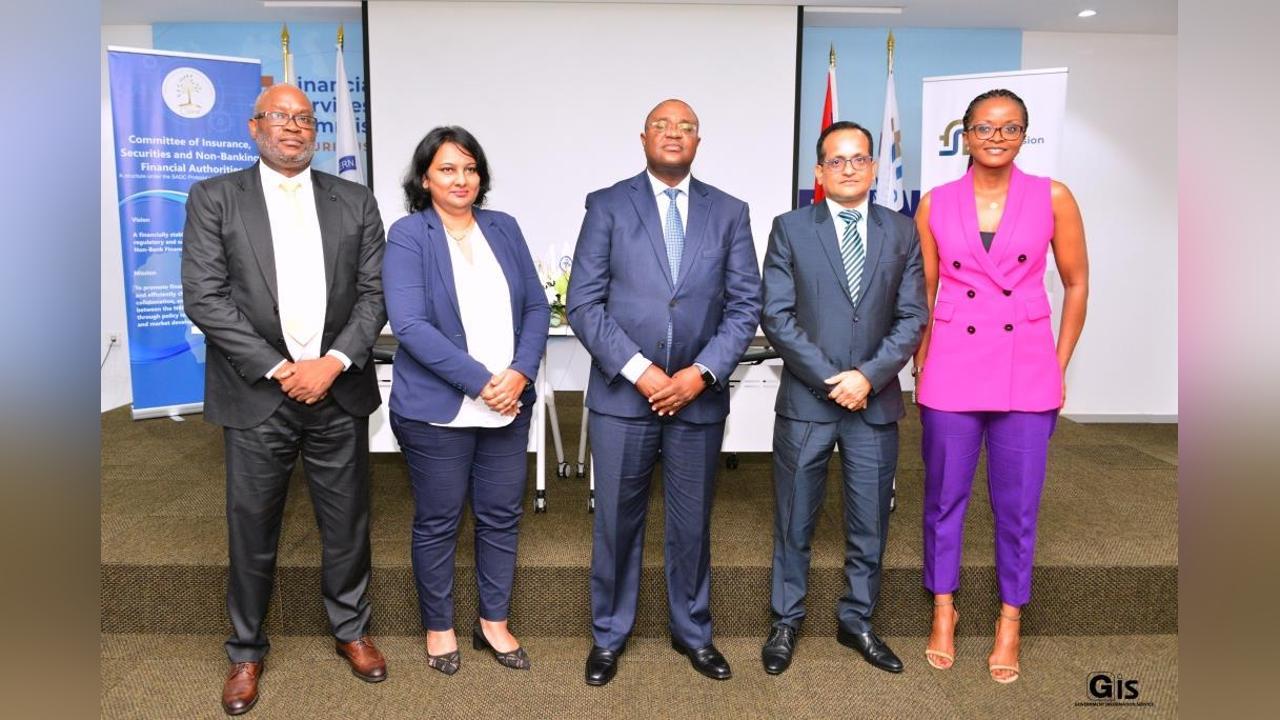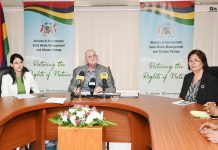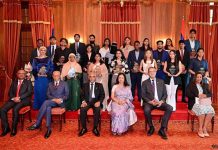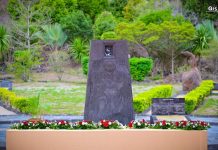Africa-Press – Mauritius. The Financial Services Commission (FSC) Mauritius is hosting the Bi-Annual Meeting of the Committee of Insurance, Securities and Non-Banking Financial Authorities (CISNA) Governance Council and Sub-Committees from 27 to 31 March 2023, in the presence of all CISNA Members and other stakeholders.
The announcement was made, this morning, at the Nex Tower in Ebène, during a joint press conference held by the Chief Executive of the FSC Mauritius, Mr Dhanesswurnath Thakoor, and the Chairperson of the CISNA, Mr Kenneth Simataa Matomola.
Mr Thakoor recalled that the CISNA was an important sub-committee of the Southern African Development Community (SADC) and was responsible for the supervision of insurance, securities and non-banking financial institutions in SADC Member States.
Furthermore, he remarked that the CISNA’s Secretariat, officially opened in 2022, was found in Mauritius. “The Secretariat,” the Chief Executive of the FSC stressed, “is the engine from which all the works of the CISNA are coordinated.
” “We are proud and privileged to have been chosen to be the host of this Secretariat as this testifies to the commitment of the FSC Mauritius to reinforce our existing collaboration with our regional counterparts,” he pointed out.
On this score, Mr Thakoor highlighted that there would be more meetings hosted in order to show the engagement of the FSC Mauritius as a key enabler to contributing towards the adoption of harmonised regulatory and supervisory standards in line with international best practices.
The Chief Executive observed that the objective of the Government was to position Mauritius as the gateway to Africa as well as promote the intra-SADC collaboration.
“It has been noted that most problems of the SADC Member States are alike and that our solutions can be found among ourselves, therefore it is time that Africa starts to take matters in its own hands,” he indicated.
For his part, Mr Kenneth Simataa Matomola highlighted that the CISNA was established in June 1998 under the Protocol on Finance and Investment of the SADC.
It forms part of the Directorate of Finance, Investment and Customs of the SADC Secretariat and reports to the SADC Committee of Ministers of Finance and Investment.
“The current CISNA Membership consists of 26 Member Authorities from 14 SADC Member States,” he added.
Moreover, he underscored that the mandate of the CISNA was to ensure that the non-bank financial services regulatory frameworks within SADC Member States were harmonised and in compliance with international best practices, standards and principles.
As regards the structure of CISNA, the Chairperson indicated that it had a General Council, which was the highest decision-making structure for CISNA that comprised all Member Authorities, represented by their respective Heads.
“The execution of the decisions of the General Council is made by the Governance Council, who also oversees the operations of CISNA and that of the Secretariat,” he said.
Speaking of the CISNA Bi-Annual Meetings, Mr Kenneth Simataa Matomola underscored that these were the first biannual meetings of the CISNA Governance Council and Sub-Committees for the year 2023.
“The purpose of the Bi-Annual Meeting was to take note of the progress made by the Sub-Committees and CISNA as a whole in terms of the CISNA Strategic Plan 2022-2026 that was approved in April 2022, and I am pleased to notice the level of participation and attendance at the Meeting,” he stated.
“The last Bi-Annual Meeting,” the Chairperson observed, “was held in October 2022 in Mauritius when the office of the CISNA Permanent Secretariat was also inaugurated.
” “In less than six months, CISNA has progressed well in terms of its strategic plan as reported by the Sub-Committees during the Bi-Annual Meeting,” he emphasised.
Mr Kenneth Simataa Matomola underscored that the Meeting started on 27 March 2023 with a Joint meeting of the three Sub-Committees and the representatives of SADC to consider one of the major assignments of CISNA, that is, the development of seven Model Laws for Non-Banking Financial Institutions within the SADC region.
“The objective of Model Laws is to have an instrument that would be a basis for harmonisation of laws in the region that are aligned to international best practices. but at the same time, speak to the reality of our region, our context and level of development,” he pointed out.
Moreover, the Chairperson highlighted that discussions revolved around the treatment of common terms and subject matter such as power of regulators, penalties, enforcement and consumer protection.
“The Governance Council noted good progress on the Action Plans of the Sub-Committees under the new Strategic Plan 2022-2026, and we are confident that the good starting step will be sustained, and ensure that CISNA completes all the projects identified within the timeframe,” he emphasised.
Mr Kenneth Simataa Matomola also dwelt on important issues that the Governance Council deliberated on including: capacity building; collaboration between Members Authorities and stakeholders in the region and beyond; leveraging on available opportunities; innovation in terms of FinTech and Regulatory Sandbox; and exchange of ideas and experiences.
“Emphasis was placed on learning from each other and on collaboration to ensure efficiency in the execution of CISNA mandate by avoiding duplication of effort, reducing cost and bringing synergy in our approach and initiatives,” he indicated.
For More News And Analysis About Mauritius Follow Africa-Press







